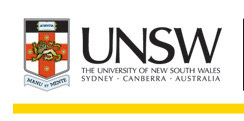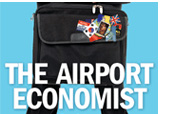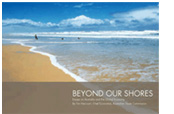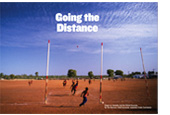By Tim Harcourt*
Brazil and Australia are two great southern lands that are vast, diverse and for their founders, considered to be far, far way. And for many years out of sight meant (hopefully and maybe even by design) out of mind.
One land Australia was settled as a gaol, a great public private sector partnership (ppp) but it really became three societies, the gaoled, their gaolers and the dispossessed local indigenous populations.
Somehow, despite these humble beginning and tensions, the society did get on thanks to great natural resources, wheat, wool and a gold rush or two, and eventually free settlers from the old world joined the gaoled and the gaolers and over time outnumbered them.
The country was also successful due to great national leadership by Bob Hawke, a trade union leader, who had been to Oxford as a Rhodes Scholar, and who as Prime Minister led a Government that decided to change the habits of a century. The dollar was floated, tariffs reduced, trade unions and employers reconciled, and the nation embraced its neighbours to the north in an economic partnership. ‘The Tyranny of Distance’ was replaced by ‘The Power of Proximity’. As a result, today this land is now one of the most successful economies in the world, having survived an Asian financial crisis just over a decade ago, and the recent global financial crisis (GFC) with barely a scratch. The society is better integrated, more globally engaged, and in some ways more confident in its global outlook.
The other land Brazil wasn’t settled as a gaol in the same way, but under the burden of slavery. The other land is vast too but geographically very different. This land also had its issues with its indigenous people, it too relied on immigration for its human capital and it too has vast natural resources that the world wants. It too had issues with its neighbours but for the most part avoided conflict and according to local economists and historians this made it relatively parochial and mainly focussed on internal issues within its borders except for a quick trip next door for a tango lesson.
This land also had its economic issues to contend with the impacts being felt even as recently as a decade ago. For much of its recent economic history, it didn’t have double digit inflation and unemployment to contend with but it had much worse problems, with hyperinflation, labour market dislocation and mass poverty. Its financial system was not so much antiquated but dysfunctional, there were problems with exchange rates, interest rates and debt burdens and there were not just strikes but widespread social unrest impacting on its very democratic stability.
However this land also had a trade union leader, Lula. He hadn’t been to Oxford, but was from the poor north east of the country, had been gaoled for his trade union activity and ran for president three times before being elected. He too reformed the country’s economy whilst maintaining strong social justice programmes (many of whom were started by his predecessor who was a well-known professor of sociology before coming to office). As result this land is now also economically well positioned to deliver resources to rest of the world to generate prosperity and raise living standards for its citizens. It seems a long time since its difficulties, especially those of the 1970s and 1980s.
Of course, these two lands, Australia and Brazil have their similarities but we still don’t know much about each other. From an Australian point of view when we thought of Brazil we mainly thought of sand, soccer and samba. We didn’t know much about Brazil although we all knew about Pele. In my hometown of Adelaide, when Pele famously visited he received the biggest local reception since the Beatles in 1964. And even when I joined Austrade in 1999, when I asked to head of Austrade at the time, permission to go to a conference in Brazil, he laughed and said I just wanted to go to the beach in Rio, and said Brazil (and South America in general) was of little importance to Australia. Furthermore, he didn’t believe that there was a conference in Brazil for me to go to and asked me for the paper work. So I got the conference organizer to send me twenty-five pages in Portuguese, with my permission slip on top. He signed it without managing to get past the first page!
But this was 9 years ago. And people’s perceptions of Brazil are changing. And it’s not surprising given Brazil’s solid rate of economic growth (7.5 per cent in 2010, post-GFC, with a follow up of 4.5 per cent anticipated if inflation risks are contained), accommodating fiscal and monetary policy, impressive export growth (thanks to China) and importantly strong increases in education retention and reductions in absolute poverty. I was told by local Brazilian economists that over 33 million people have been lifted out of poverty and 49 million have managed to reach upper middle class and middle class status since my first visit. In fact, I was told by one of my Rio hostesses that the Brazilian exchange rate is so strong “that even my maid is taking her holidays in Buenos Aires to do some shopping”. (I wrote about my first visit to BA in my article “Don’t buy from me, Argentina.”).
Of course there are issues in Brazil. We can’t ignore them as they need to be managed. There’s fear of inflation, fear of bottlenecks in infrastructure (with the 2014 World Cup and 2016 Olympics coming up), education and productivity issues, and of course the challenges of climate change. Some of these issues we face in Australia, too but on a much smaller scale. But many offer great opportunities for Brazilian-Australian close collaboration.
Collaborators or Competitors?
Brazil and Australia, the two great southern commodity exporters were sometimes seen as natural competitors. But increasingly we are doing more things together.
For instance, in education. Brazil’s growing middle class and its citizens who are being pulled out of poverty are hungry for education. Brazil’s human capital needs are Australia’s opportunity. Accordingly, our universities are doing more together particularly as many Brazilians now study in Australia. For Australia, Latin America now makes up just over 5 per cent of total enrolments, with Brazil ahead of the pack with just over 16,000 enrolments (followed by Colombia on 10,000, Peru on 2,200, Chile 1700 and Mexico 1500). And with Brazil leading the pack much vitality is added to our universities particularly in the schools of economics and business, the environment (e.g. marine biology), architecture and design which makes the typical Australian campus a much more attractive place to be nowadays.
In fact, education is one reason I have been recruited by the University of New South Wales (UNSW) in Sydney as the first JW Nevile fellow in Economics at the Australian School of Business. I am now teaching International Business Strategy in Asia, for UNSW’s Australian Graduate School of Management’s MBA programme, and I have been asked to build up a similar programme for South America. UNSW naturally is keen to have more South American students from Brazil, Colombia and Chile. In the 1980s we opened up our campuses to Asia, in this decade it will be the age of South America at our Universities. In addition, the UNSW and the Federal University of Rio de Janeiro (UFRJ) are supporting me and the Lowy Institute in co-authoring a book on Brazilian – Australian economic opportunity to be published in the lead up to Brazil’s ‘double header’ of the FIFA World Cup and the Rio Olympics. So Brazil can expect to see a lot more of me over the next 5 years or whether Brazil likes it or not! This will also provide great research for my future book The Airport Economist Goes to Rio.
In climate change, Australia’s Senior Trade Commissioner in Sao Paulo, my fellow South Australian Greg Wallis has been heavily involved in investments in water and clean energy. Given Brazil’s strong environmental credentials and Australia’s capabilities, we can both put green back into the green and gold of both countries!
And last but by no means least, sport, culture and recreation, the World Cup-Rio Olympics double will be the opportunity of a life time for so many in Brazil and also here in Australia.
On this point let me finish off two myths once and for all.
Firstly, sport is not frivolous; it’s a real business and increasingly a global one. Sydney had its moment with the Olympics in 2000, and many Australian companies got their break then. Austrade’s own Business Club Australia generated $1.7 billion in trade and investment from sports networking between Sydney 2000 and Beijing 2008 alone and they’ll be more to come in London in 2012. Brazil knows this too – that its ‘country brand’ will be on display in the lead up to 2014/2016 World Cup-Rio Olympics double – and they will be wanting to make the most of their time in the sun. (Something that I know Brazilians are very good at!). And from Australian point of view, its great news to see my mate Craig Foster, SBS Chief Football Analyst leading sports business missions to Brazil, following on from the great work that he and Les Murray did for Business Club Australia in South Africa at the FIFA World Cup in 2010. As everybody knows, Fozz is a passionate and dynamic individual and just the sort of person we need leading the charge in Brazil.
The second myth to bust is that if you like sport you can’t like the arts and vice versa. And I have got to say this is one that applies to Australia and not to Brazil. I have always loved the way Brazilians are so proud of their unique musical, artistic and cultural traditions as much as they are of Pele and Garrincha, Socrates and Ronaldo. It makes Brazil unique, a country of culture and charisma, which can never be replicated or manufactured. Australian historian John Hirst famously said that with cultural integration in Australia, in 2030 or so, Australia will be a ‘beautiful people.’ Well on that score, I think Brazil has got there already.
So in conclusion, Brazil and Australia, the two great southern lands, despite taking very different journeys in the past, are growing together in the future. And as we approach 2014 – 2016, as the whole world goes nuts for Brazil, I am sure Australia will be on board all the way from Freo to Rio, and we’ll play our part in the further success of this dynamic, charismatic and fun loving nation.
*Tim Harcourt is the first JW Nevile Fellow at the Australian School of Business, UNSW and author of The Airport Economist and The Airport Economist Goes to Rio. www.timharcourt.com













No Comments so far ↓
Comments are closed.